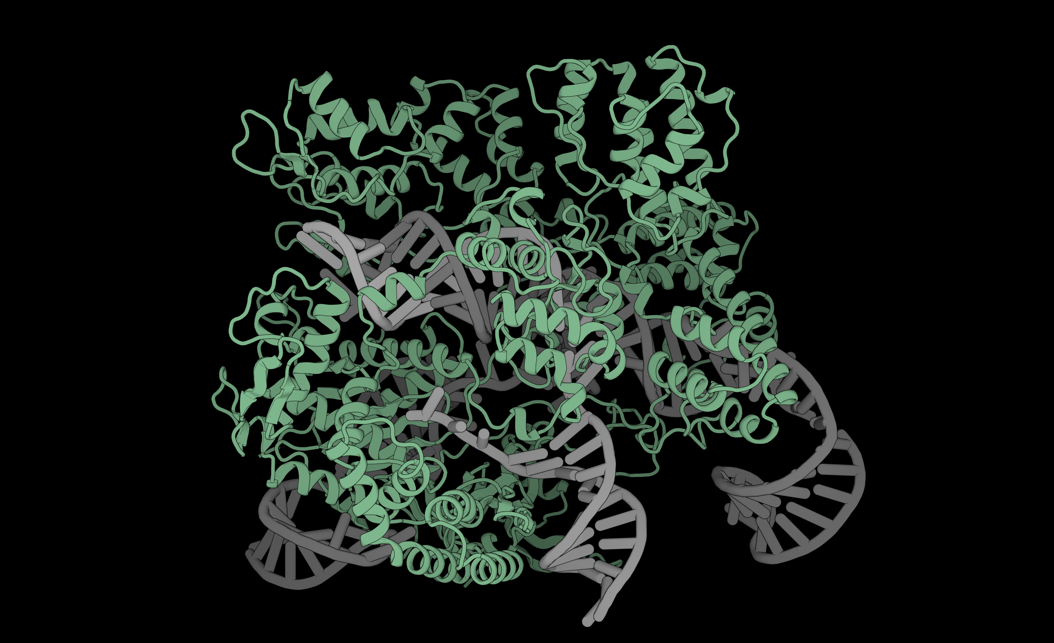Ali Madani, PhD, CEO of Profluent, says there’s an urgent need to move away from the time-consuming slog of random therapeutic discovery and into artificial intelligence (AI)-based bespoke design. “There are real people with lives at stake and patients waiting,” he emphasized in an interview with GEN.
Madani’s Bay Area-based company is currently building foundation models to steer functional protein design for generalizable applications across agriculture, biotechnology, and human health. The team has recently taken one step toward this goal for CRISPR-based therapeutics.
In a new study published in Nature titled, “Design of highly functional genome editors by modelling CRISPR-Cas sequences,” Profluent researchers have used a large language model (LLM)-based approach to design programmable gene editors capable of precision editing of the human genome. The publication describes the design of OpenCRISPR-1, which Profluent terms as the “first AI-generated gene editor.”
CRISPR systems have been historically challenging to design given their large molecular space composed of complex and multi-step functions, which require optimization across multiple dimensions. Protein language models have the advantage of learning the evolutionary blueprint underlying protein function to bypass the need for defining structural hypotheses.
Madani said CRISPR is “a universe of its own” that requires training models on large datasets to learn the underlying principles of protein behavior and molecular interactions. The model’s first task was to generate designs across virtually every single CRISPR family known to humankind.
The team curated the CRISPR-Cas Atlas, an extensive dataset composed of more than one million CRISPR operons obtained from systematic mining of 26 terabases of genomes and metagenomes. The model then generated 4.8 times the number of protein clusters across CRISPR-Cas families found in nature.
Notably, Profluent’s AI-designed CRISPR proteins showed improved activity, specificity, and immunogenicity relative to naturally occurring gene editors, such as Streptococcus pyogenes (SpCas9), the widely adopted bacterial-derived Cas9 nuclease, despite being hundreds of mutations away from any known natural protein.
Profluent launched with a $9 million seed round in 2023 and secured an additional $35 million financing in 2024. Since its founding, the company has announced a handful of updates to its AI platform to demonstrate steerable protein design, including proseLM, Protein2PAM, and ProGen3.
One-stop shop
OpenCRISPR-1 was released in April 2024 to facilitate broad use across research and commercial applications. Since that time, tens of thousands of academic and industry researchers have accessed the open-source sequence across a variety of verticals, from developing drought-resistant crops to drug discovery. Profluent plans to open-source the CRISPR-Cas Atlas to further promote democratization in the gene editing space.
Hilary Eaton, PhD, chief business officer at Profluent, emphasized that the appeal of the company’s AI platform is the generalizability across modalities. Given the high demand for a “Cas9 look-alike,” the team is inspired to expand toward new territories, including base editors, prime editors, large insertion techniques, and more.
“Our language models can write anything. Let’s build the exact thing that would solve your therapeutic problem,” said Eaton in an interview with GEN.
In addition to CRISPR, Eaton noted that human therapeutics possess a range of adjacent needs for protein design to solve, including manufacturing, cell therapy components, and delivery. Instead of customers seeking services from 10 different companies, Profluent aims to be the “one-stop shop” that provides solutions in this broad array of contexts.
As a parent of two daughters impacted by rare disease, Eaton has been frustrated watching single technologies develop to tackle only a few indications. Profluent’s generalizable platform is what drew her to the company.
“It’s freeing to be in an environment where we can pursue indications with both huge patient populations and small patient populations. The question is more about ‘what are the hard problems?’ and ‘can the AI model fix them?’” she said.
Madani stated that while we’re in the “early innings” of seeing the true impact of AI on life sciences, the uptake from OpenCRISPR-1 has “exceeded expectations.”
“This is one of our flagship publications that has been a beacon for folks from agriculture to therapeutics, and industry and academia,” said Madani. “It’s shown a voracious appetite for solutions that are uniquely authored by AI, and we’re excited to be at that frontier.”
The post Profluent’s AI-Designed Gene Editor Glimpses Into Generalizable Platform appeared first on GEN – Genetic Engineering and Biotechnology News.



